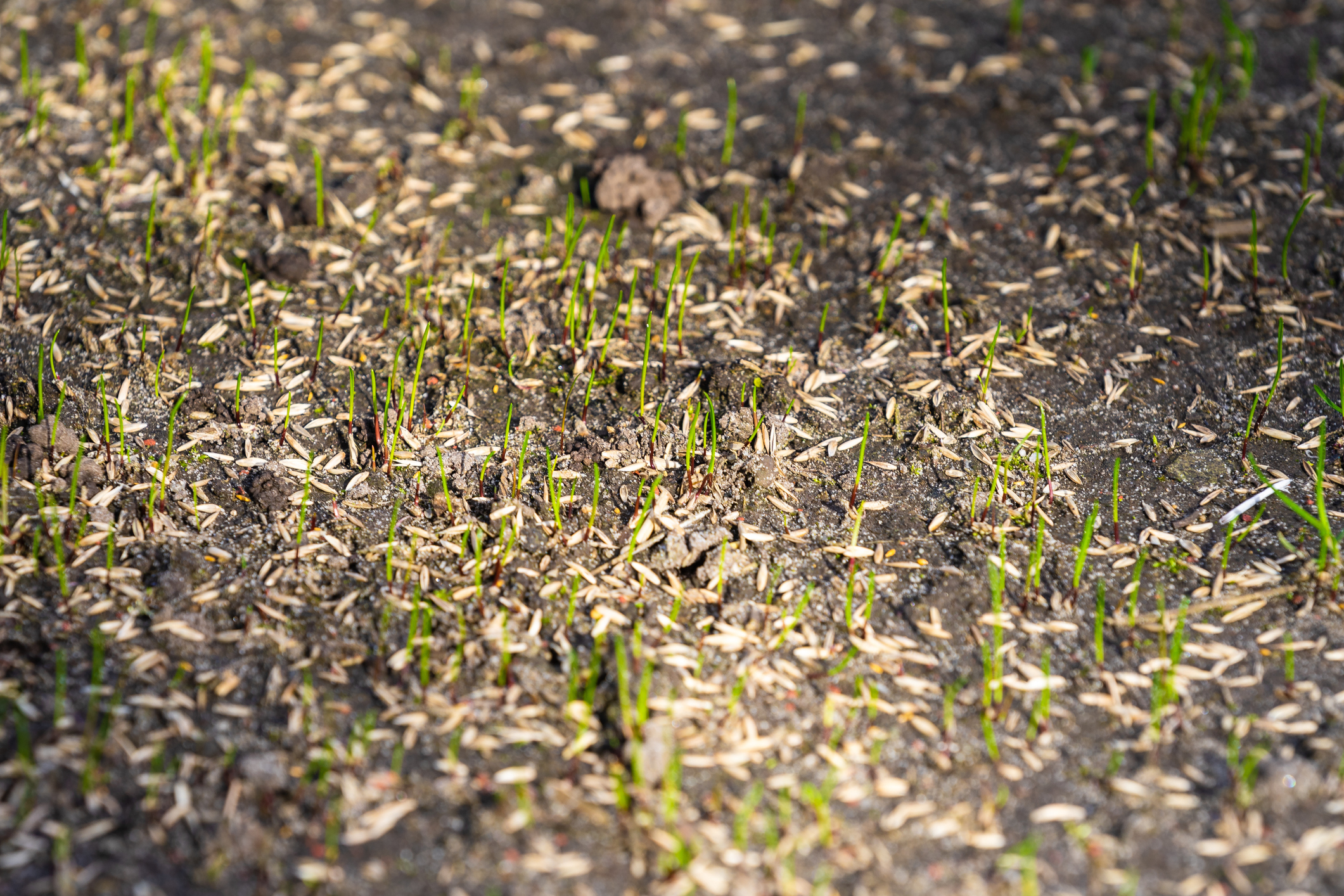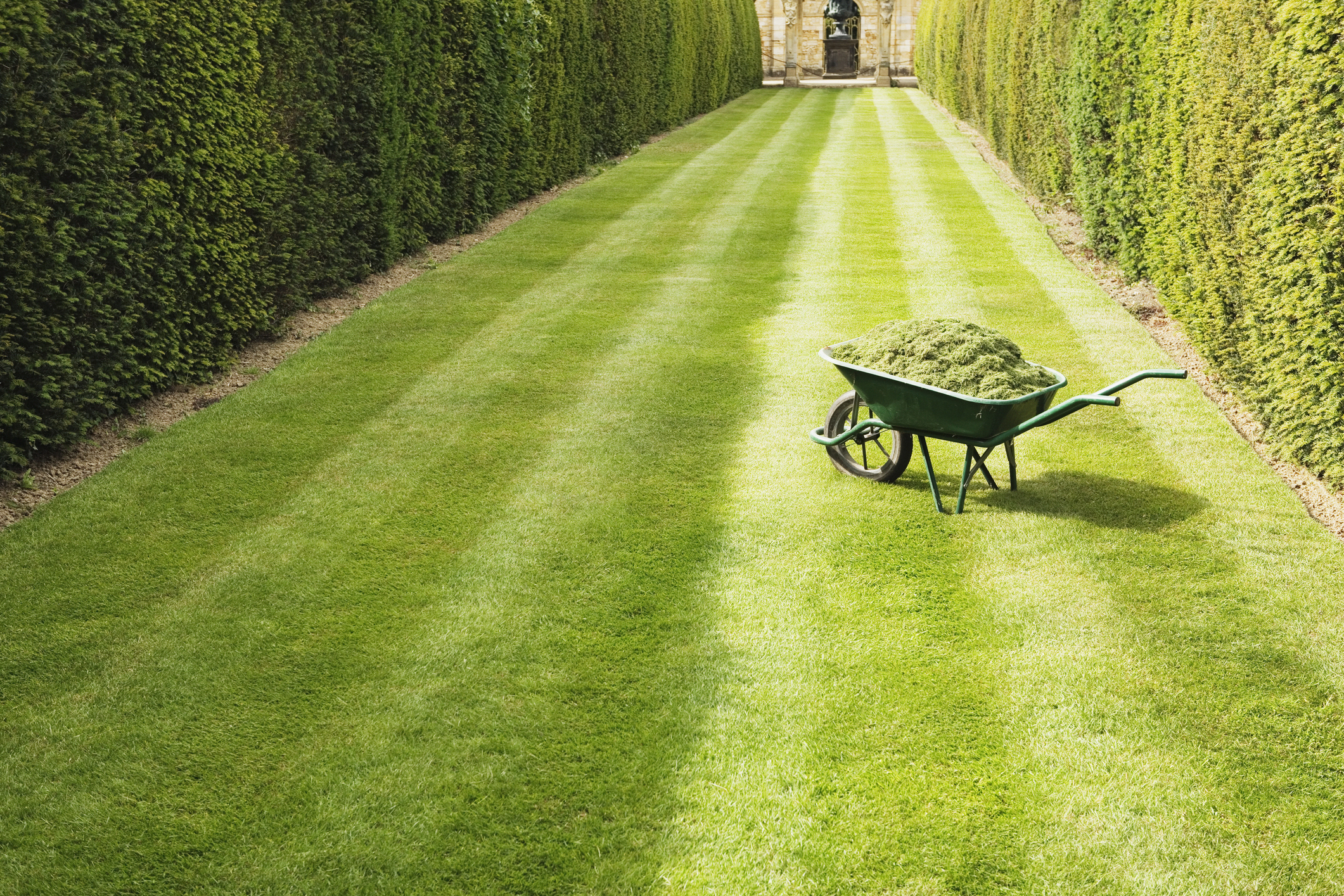
At the moment, we're all spending a lot more time in our gardens due to the restrictions on leaving our homes.
Even if you're lucky enough to have some outside space though, the increase in time spent in your garden might have highlighted just how much your lawn needs a bit of a spruce up!
Now that garden centres are opening up again, you might've even treated your green space to some grass seeds, in a bid to restore some lushness to your garden.
MORE: Gardening ideas and activities for kids
But if you have sown some grass seeds on your lawn - you might be wondering, how long does grass seed take to grow?
If you've thrown it down and are eagerly anticipating the greenery emerging, here's how long you might need to wait...
How long does grass seed take to grow?
Depending on the variety of grass seed you've bought, experts explain that the germination time (the time it takes from them being sown, to the first sprouting), could be anywhere between five and 30 days.
Parenting advice, hot topics, best buys and family finance tips delivered straight to your inbox.

This means the grass should begin to grow between five and 30 days after laying down the grass seed.
Award-winning garden designer Charlotte Howard said, "Grass seed can take between 5 and 30 days to germinate, depending on the variety.There are many different types of grass seed mixes depending on the sort of lawn you want.
"I generally tell clients it takes about two weeks to germinate depending on conditions."
Once the seed is germinated, the grass should grow at a rate of around 2cm each week.
How do I speed up grass seed germination?
The Royal Horticultural Society advises that seed germinates best in the early autumn or, mid-spring - meaning right now is a perfect time for it!
Generally, you can't speed up germination - getting grass to grow well simply requires a bit of preparation, as well as some all-important time and patience.
The RHS advise that if you want to grow a successful lawn, it's all about ensuring good seed bed preparation beforehand.
They suggest that you should:
- eliminate weeds beforehand
- dig or rotovate the site to a depth of 20-25cm
- dig in some well-rotted manure or other organic matter to hold moisture
- remove any weeds that have grown during the germination process
Afterwards, they also state that is good to 'tread' the area several times to ensure a level surface, and rake the garden too, several times in different directions. You should also apply and rake in general purpose fertiliser.

How often do you water new grass seed?
Charlotte explained to GoodtoKnow that it's important to get the balance right when it comes to watering your grass seeds. "Watering is a gentle art - not too much and not too little."
So how often should we water new grass seed?
She recommends, "Once a day for the first few weeks, and do it deeply - too little water and the roots will be shallow, making the eventual grass less strong."
Charlotte also suggested, "Don't water on rainy days. Mornings and evenings are best. After 6-8 weeks it should be fully established and you can cease watering and walk on it."
Amy is Senior Digital Writer across Woman & Home, GoodTo and Woman, writing about everything from celebrity news to health, fashion and beauty features. When she isn't obsessing over the latest dress drop from Marks & Spencer, you'll most likely find Amy out running, or with a cup of tea in hand ready to dive into a gripping new Netflix series.